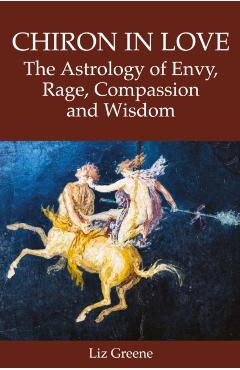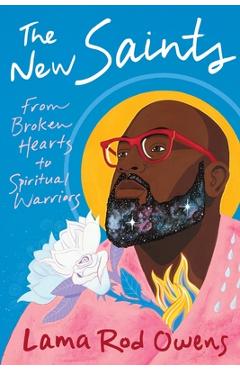Love and Rage: The Path of Liberation Through Anger - Lama Rod Owens

Detalii Love and Rage: The Path
libris.ro
103.98 Lei
115.53 Lei
Self-help
Lama Rod Owens
Love and Rage: The Path - Disponibil la libris.ro
Pe YEO găsești Love and Rage: The Path de la Lama Rod Owens, în categoria Self-help.
Indiferent de nevoile tale, Love and Rage: The Path of Liberation Through Anger - Lama Rod Owens din categoria Self-help îți poate aduce un echilibru perfect între calitate și preț, cu avantaje practice și moderne.
Preț: 103.98 Lei
Caracteristicile produsului Love and Rage: The Path
Comandă Love and Rage: The Path Online, Simplu și Rapid
Prin intermediul platformei YEO, poți comanda Love and Rage: The Path de la libris.ro rapid și în siguranță. Bucură-te de o experiență de cumpărături online optimizată și descoperă cele mai bune oferte actualizate constant.
Descriere magazin:
In the face of systemic racism and state-sanctioned violence, what can Black, Indigenous and People of Color (BIPOC) do internally with their anger and rage? For many people, anger is often thought of as a root cause for suffering and lasting, negative repercussions. In American culture at large, anger--particularly among people of color--is delegitimized and demonized, and can even be dangerous. Social activist and Kagyu Lama Rod Owens offers a different understanding. For Owens, the coauthor of Radical Dharma , anger is one of the most important aspects of his personal identity as a Buddhist, social activist, Black American, and gay man. When denied or repressed, unconscious anger can have a negative impact with destructive consequences. But when recognized and used mindfully, it can be a positive source of vitality, courage, and dedication as well as a powerful mobilizing factor in our solidarity and commitment to enacting social change. What is needed, says Owens, is a relationship to the heartbreak of anger that is embodied, nondestructive, and deeply healing for all. Here he offers personal insights, stories, as well as Buddhist teachings and meditations for tapping into anger\'s liberating potential.

Produse asemănătoare

Love and Rage: The Path of Liberation Through Anger - Lama Rod Owens
![]() libris.ro
libris.ro
Actualizat in 28/10/2025
103.98 Lei

Radical Environmental Resistance. Love, Rage and Hope in an Era of Climate and Biodiversity Breakdown, Hardback/***
![]() elefant.ro
elefant.ro
Actualizat in 28/10/2025
324.99 Lei

Love and Rage: The Path of Liberation Through Anger, Paperback/Lama Rod Owens
![]() elefant.ro
elefant.ro
Actualizat in 28/10/2025
96.32 Lei

Chiron in Love: The Astrology of Envy, Rage, Compassion and Wisdom - Liz Greene
![]() libris.ro
libris.ro
Actualizat in 28/10/2025
156.24 Lei

Chiron in Love: The Astrology of Envy, Rage, Compassion and Wisdom, Paperback/Liz Greene
![]() elefant.ro
elefant.ro
Actualizat in 20/10/2025
121.9 Lei

Arsenic mon amour. Letters of Love and Rage, Paperback/Jean-Lou David
![]() elefant.ro
elefant.ro
Actualizat in 20/10/2025
64.99 Lei
Produse marca Lama Rod Owens

The New Saints: From Broken Hearts to Spiritual Warriors - Lama Rod Owens
![]() libris.ro
libris.ro
Actualizat in 28/10/2025
117.13 Lei

Love and Rage: The Path of Liberation Through Anger - Lama Rod Owens
![]() libris.ro
libris.ro
Actualizat in 28/10/2025
103.98 Lei